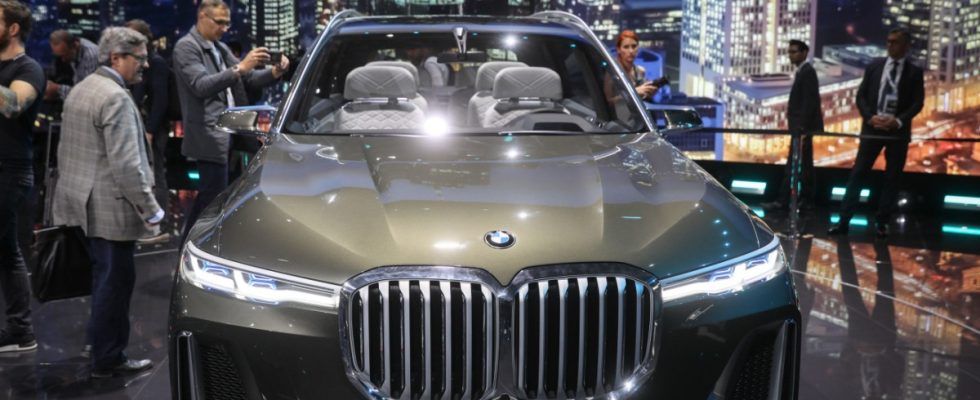The German car manufacturers Volkswagen and BMW are countering the swansong of the electric car: Volkswagen reported on Wednesday about a significant increase in orders for electric cars in the first quarter. BMW sold a quarter more battery-powered cars worldwide and broke the symbolic mark of one million electric cars. “With the delivery of the one millionth fully electric vehicle since the market launch of the BMW i3, we have reached an important milestone,” said BMW sales boss Jochen Goller. Things have been looking up, particularly in Europe, including Germany.
There is great concern in this country about a slump in electric cars because government funding ceased in 2024. Volkswagen collected more than twice as many orders for electric cars as in the previous year. The Wolfsburg-based group now has orders for 160,000 vehicles on its books, more than were sold in the first quarter. At 136,400, the group released a good three percent fewer electric vehicles than in the same period last year.
But the orders gave VW confidence that it would grow in the segment in its home region and worldwide for the year as a whole, explained VW sales boss Hildegard Wortmann. And this despite the market weakness in Germany: After the end of the state environmental bonus, electric cars are becoming slow sellers – new registrations fell by 29 percent in March. Many car manufacturers have recently let discount campaigns expire. In April, the discounts for electric cars were only 12.6 percent compared to 16.9 percent for combustion engines.
However, car manufacturers rely on selling more electric cars if they want to achieve the European Union’s CO₂ targets. From 2025 onwards, fleets should emit an average of 15 percent less greenhouse gases than in 2021. For car manufacturers, according to calculations by Patrick Hummel from the Swiss bank UBS, this means that a good fifth of sales next year will have to be electric cars. Stifel analyst Daniel Schwarz said Volkswagen in particular could have a problem from 2025 because CO₂ emissions are too high. “It’s good for profitability to sell more combustion engines,” he said. “But from 2025 onwards their share must decrease significantly, otherwise there will be high penalties.”
VW delivered more vehicles with combustion engines
In total, VW delivered 2.1 million vehicles to customers in the first quarter, 3.1 percent more than a year ago. An increase of four percent in cars and trucks with combustion engines more than offset the decline in fully electric vehicles. A VW spokesman also blamed bottlenecks in the supply of electric motors from the Kassel plant, which led to production breaks. The electric car factory in Zwickau, where, among other things, the ID.3 comes off the assembly line, was particularly affected by the interruptions.
BMW sold 594,671 vehicles from the BMW, Mini and Rolls-Royce brands in the first quarter, 1.1 percent more than a year ago. The growth drivers are purely electric cars and models from the upper premium segment. When it comes to electric cars, the people of Munich reported an increase of 27.9 percent to 82,700 vehicles.
The rival Mercedes, on the other hand, has problems with all drive types. With 463,000 vehicles in the quarter, the Swabians sold around eight percent less than a year ago. Among other things, they are struggling with delivery problems for an important part. Sales boss Britta Seeger expects improvement over the course of the year thanks to new models, including the electric version of the G-Class off-road vehicle.
Things went worse for BMW and Mercedes in the regions, especially in the important market of China: BMW sold 3.8 percent fewer vehicles here, Mercedes even twelve percent. The latter is due to the model change in the E-Class, explained the car manufacturer. The VW luxury brand Porsche suffered a drop in sales in China of almost a quarter as the sports car manufacturer deliberately stayed out of the ongoing discount battle there. However, things went better at VW in China, where sales rose by 7.6 percent. However, the Wolfsburg-based company recorded a particularly sharp drop in sales here a year ago and had to give up its top position as the leading car manufacturer to its domestic rival BYD.

